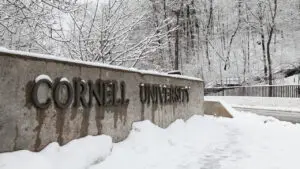FCF is pleased to announce that it has awarded a grant to Praveen Sethupathy, PhD, of Cornell University to outline the “spatial transcriptomics” of FLC. Dr. Sethupathy’s lab has been a leader in functional genomic studies, especially for liver and gastro-intestinal cancers. They also have extensive experience in FLC research. His group has focused on understanding the drivers of FLC to identify new potential therapies, and has conducted several studies of genome organization, gene and protein expression and tumor metabolism in FLC cells.
This new study builds upon years of work the Sethupathy lab has already conducted in FLC transcriptomics – the analysis of all the RNA molecules produced in FLC tissue at a given time. In simple terms, transcriptomics identifies which genes are expressed in a cell and are being transformed into functional products like proteins. Transcriptomics provides a snapshot of gene activity and therefore bridges the gap between the genome (what can happen in a cell) and the proteome (what does happen – what proteins are produced). Studying transcriptomics in FLC can therefore provide valuable insights into the molecular mechanisms underlying tumor development, progression, and treatment resistance.
This “spatial transcriptomics” effort represents the next step in the continuum of work from the Sethupathy group – mapping RNA expression to specific locations of cells within tissues. Since biological functions depend on cell organization, understanding that spatial context is critical. This analysis should be especially useful to improving our understanding of FLC’s tumor microenvironment (TME), which is critically important to many ongoing research efforts. It could also help identify cell-to-cell communication pathways in FLC that could be exploited as drug targets.

